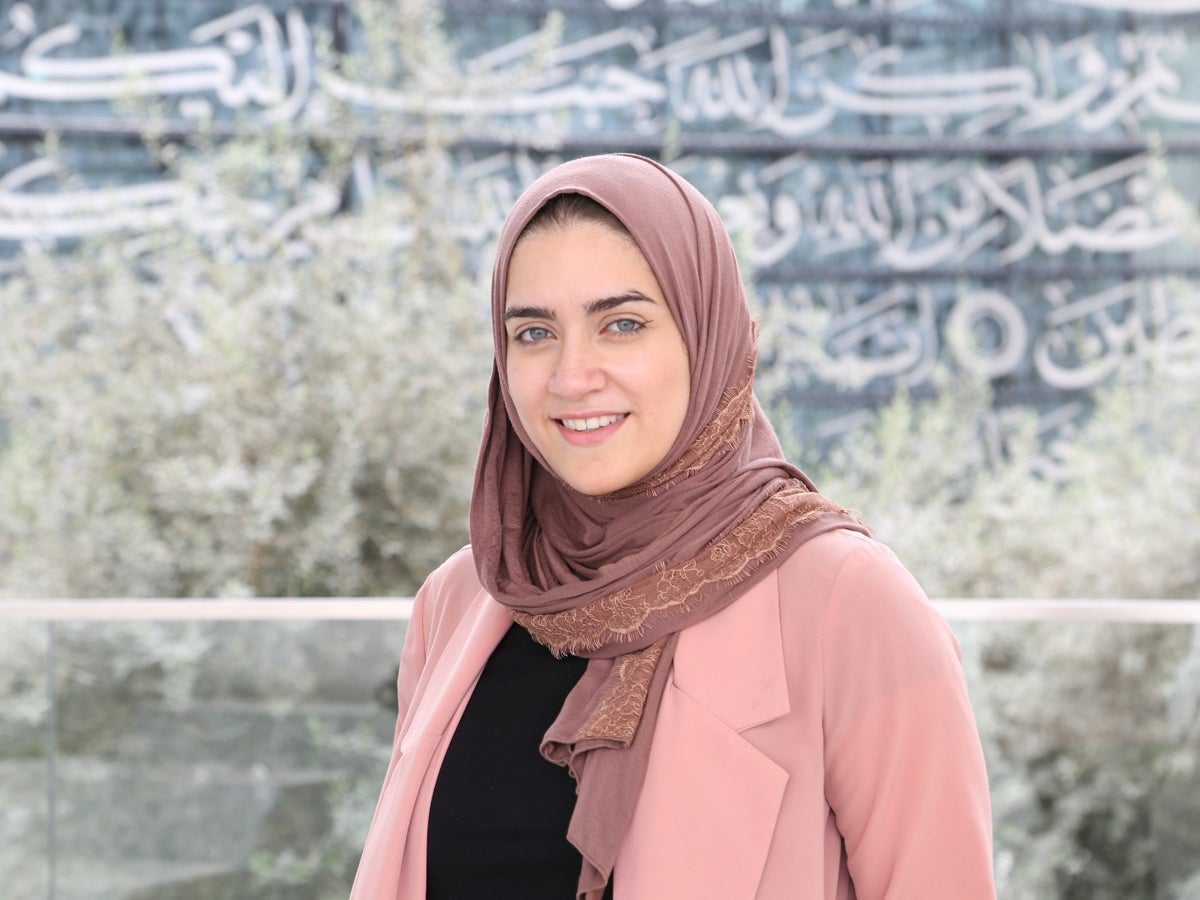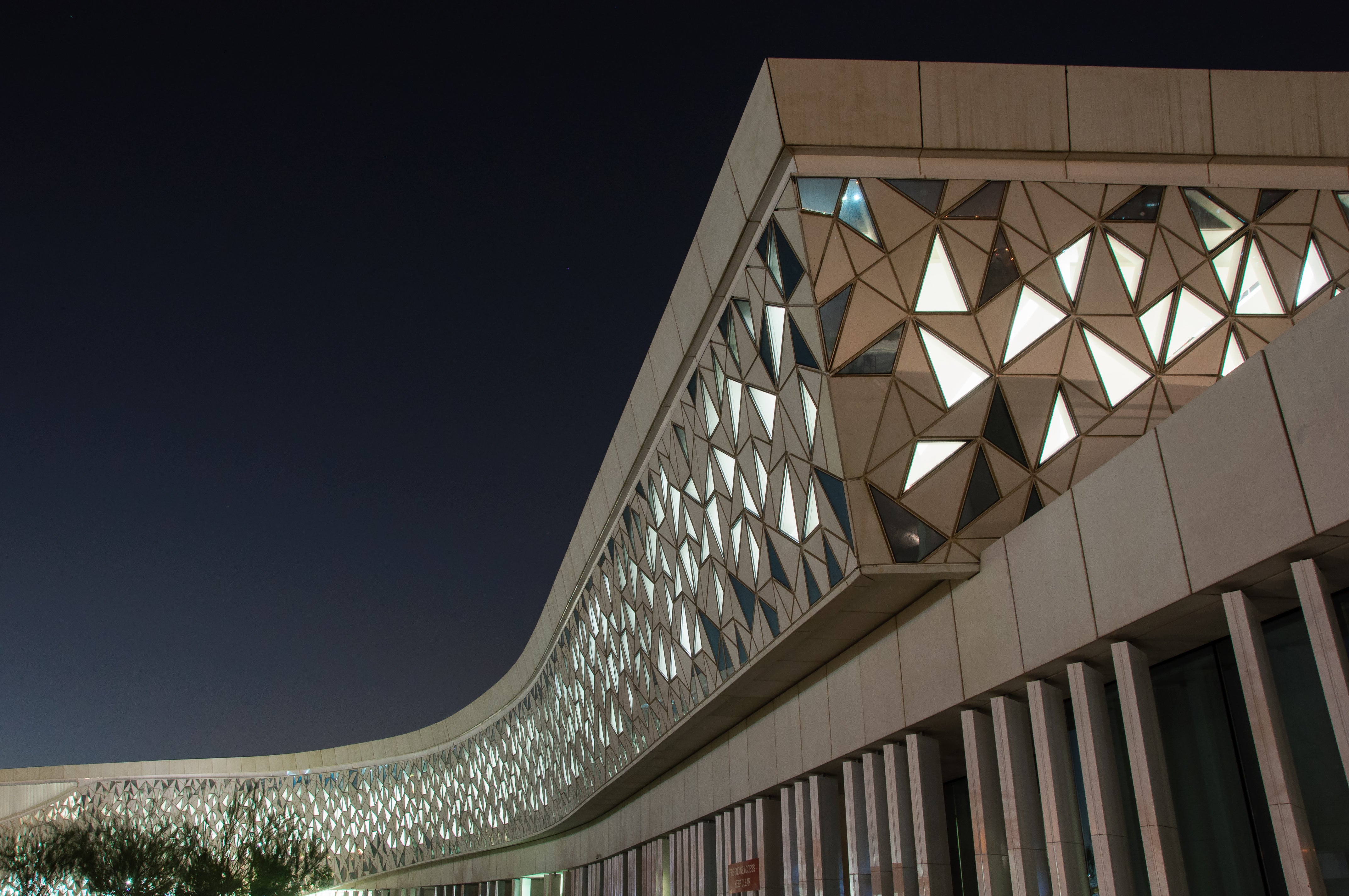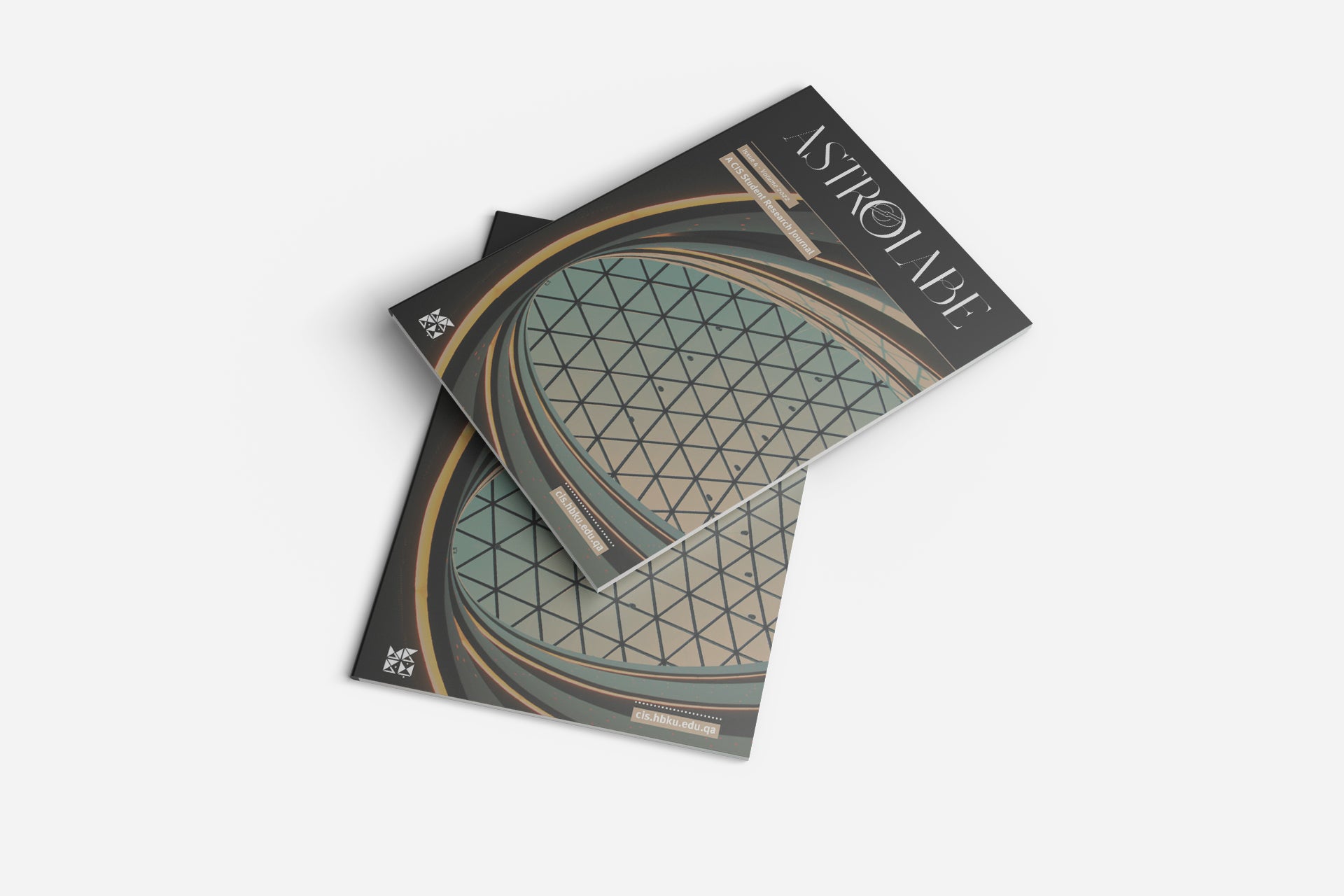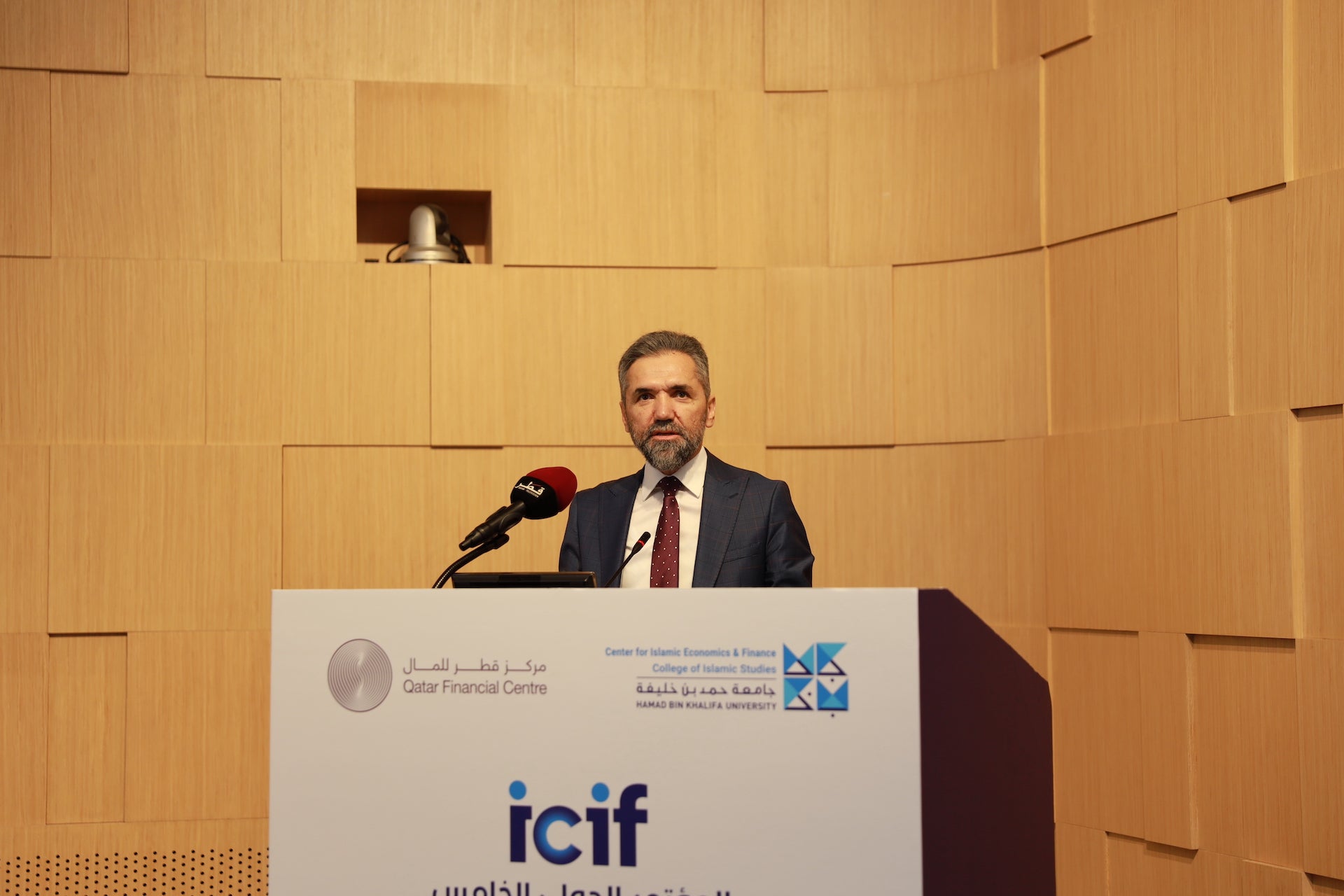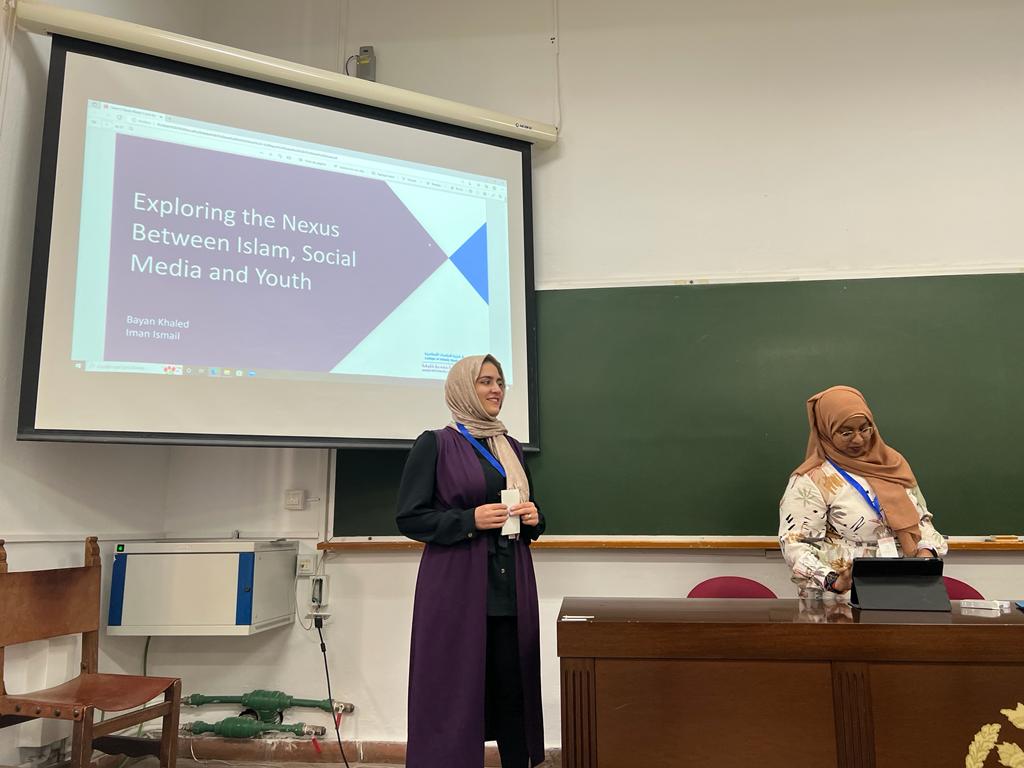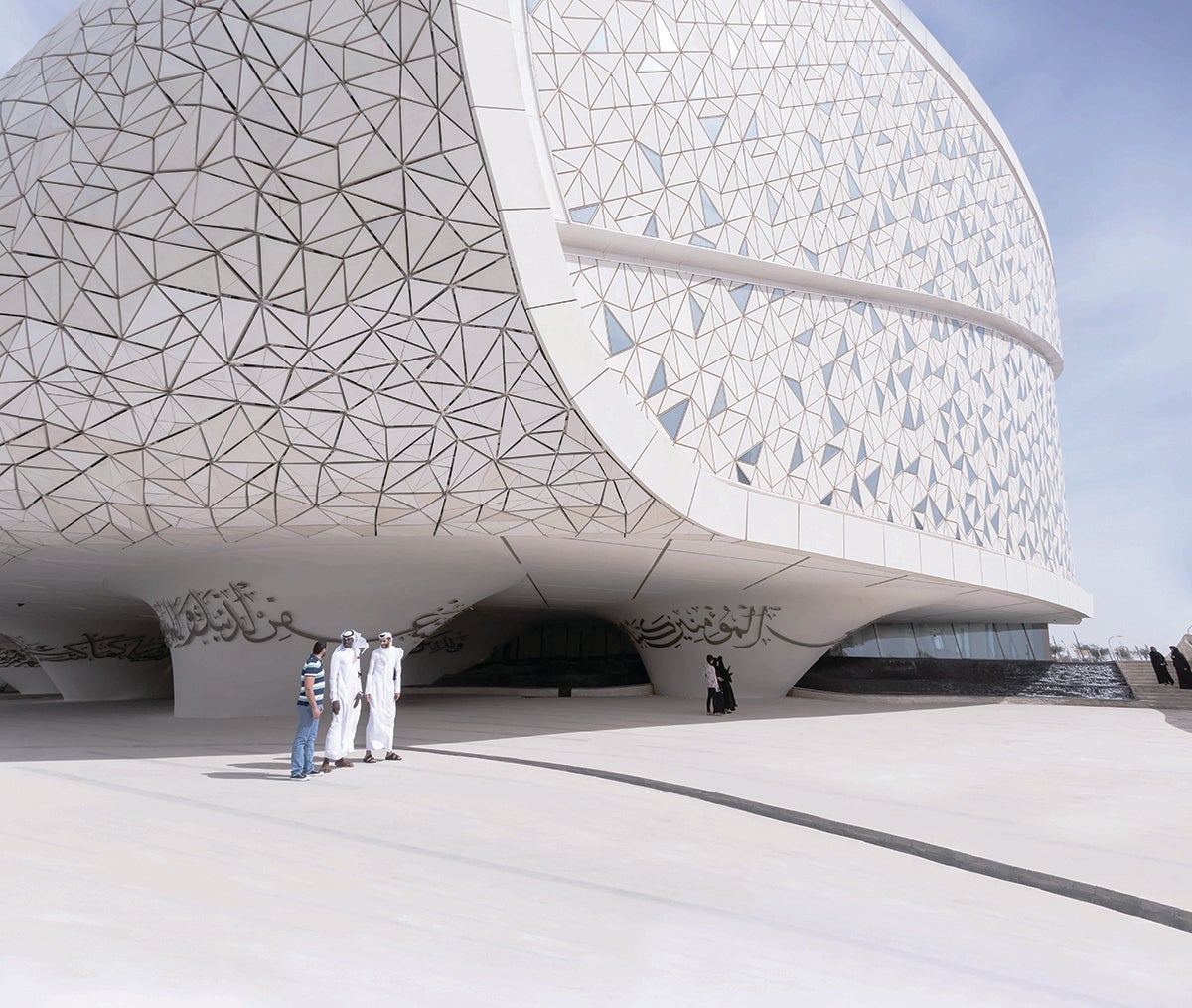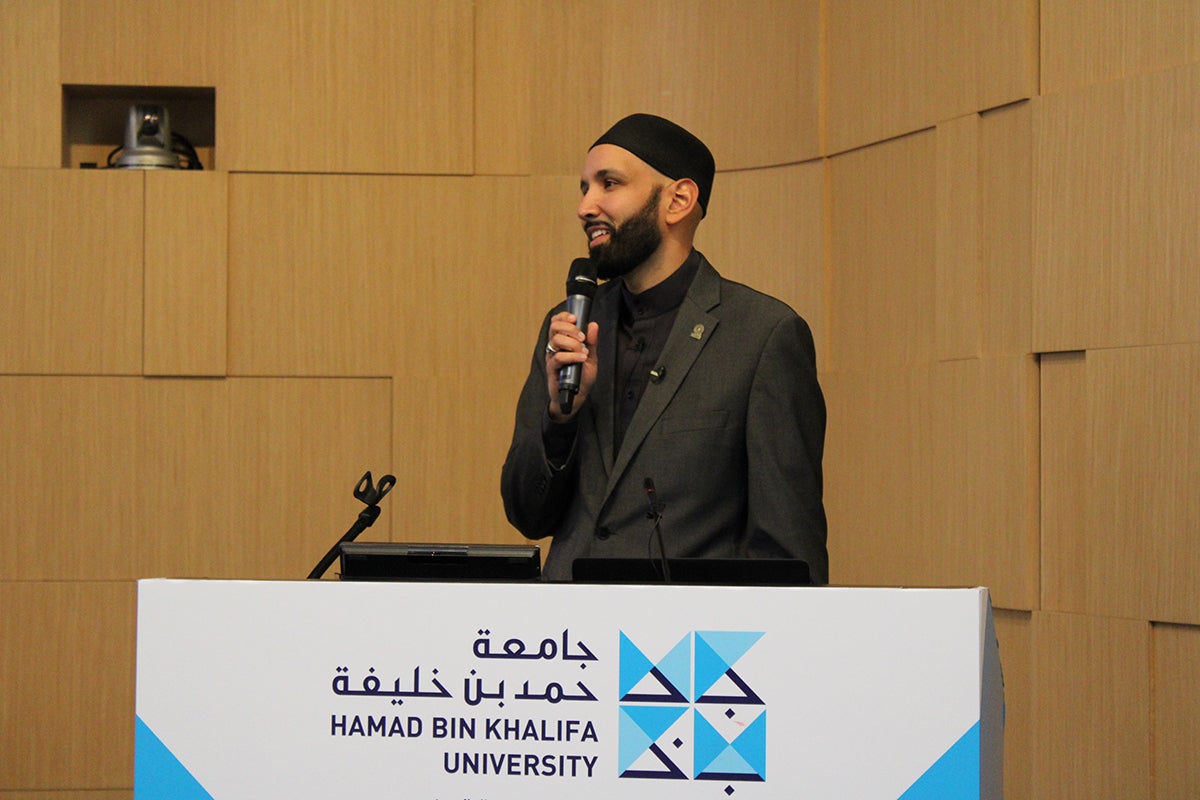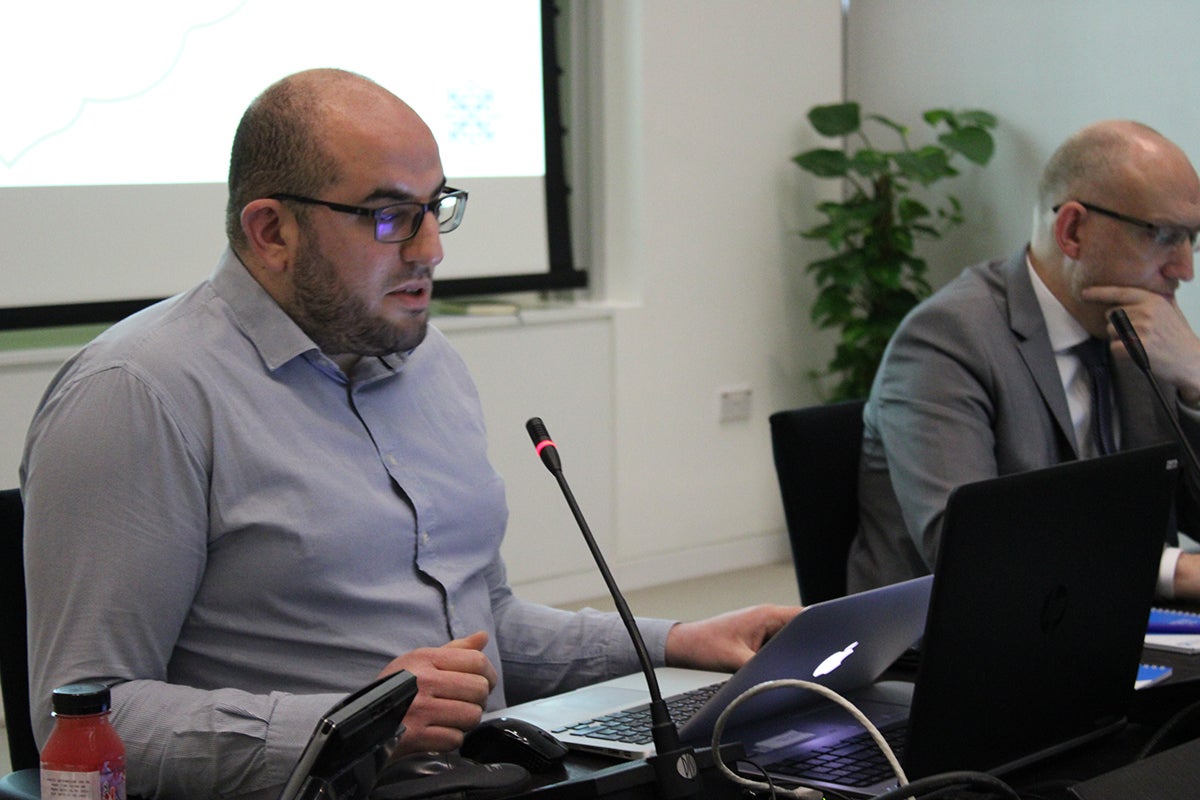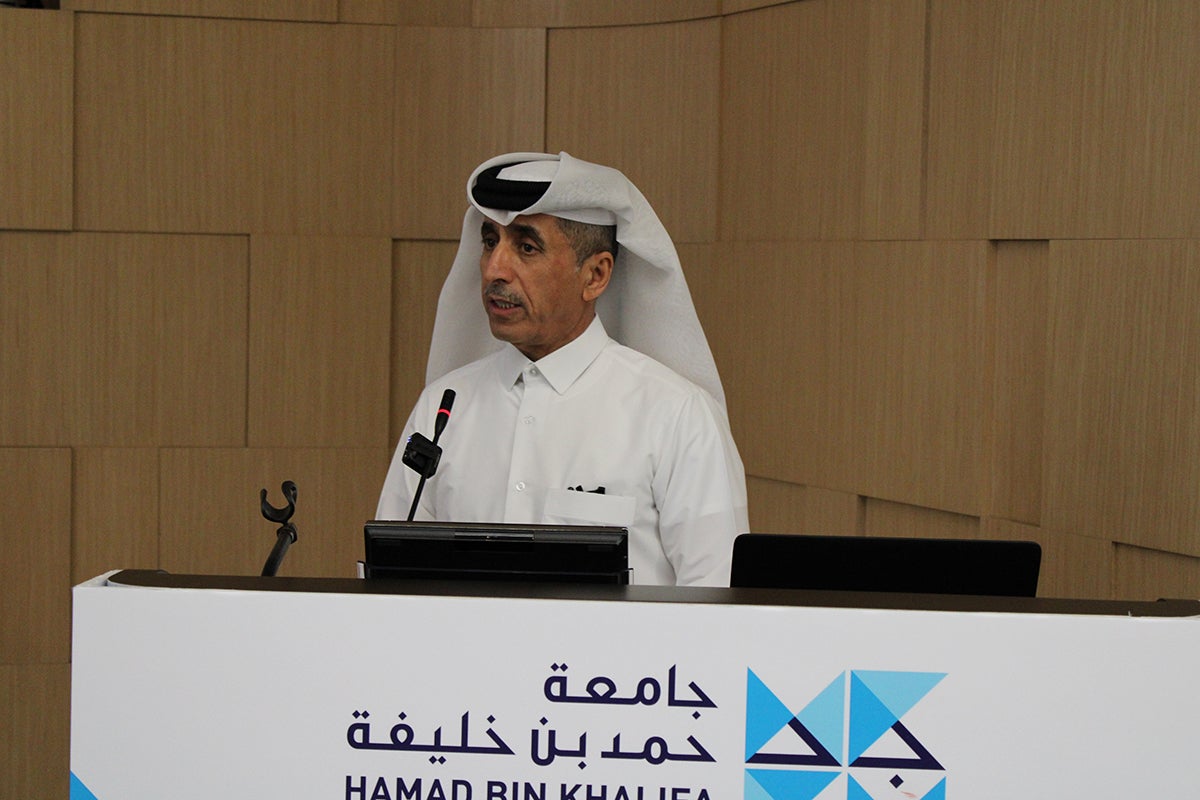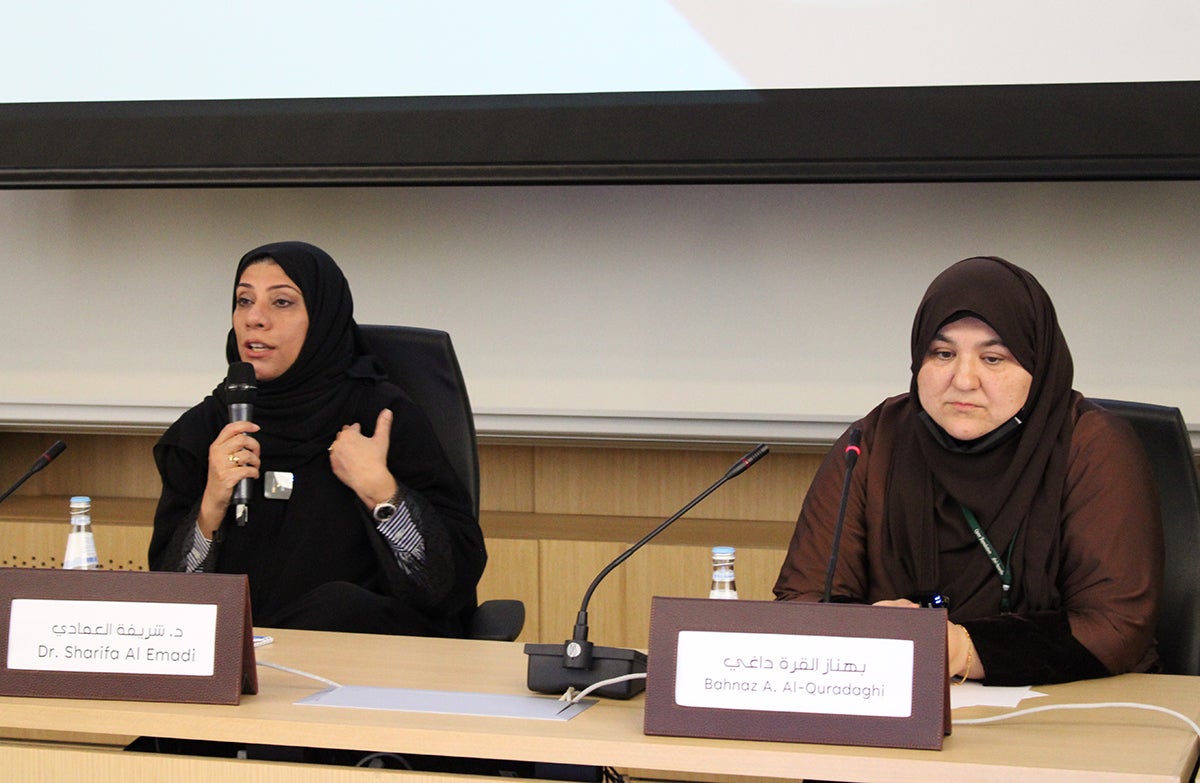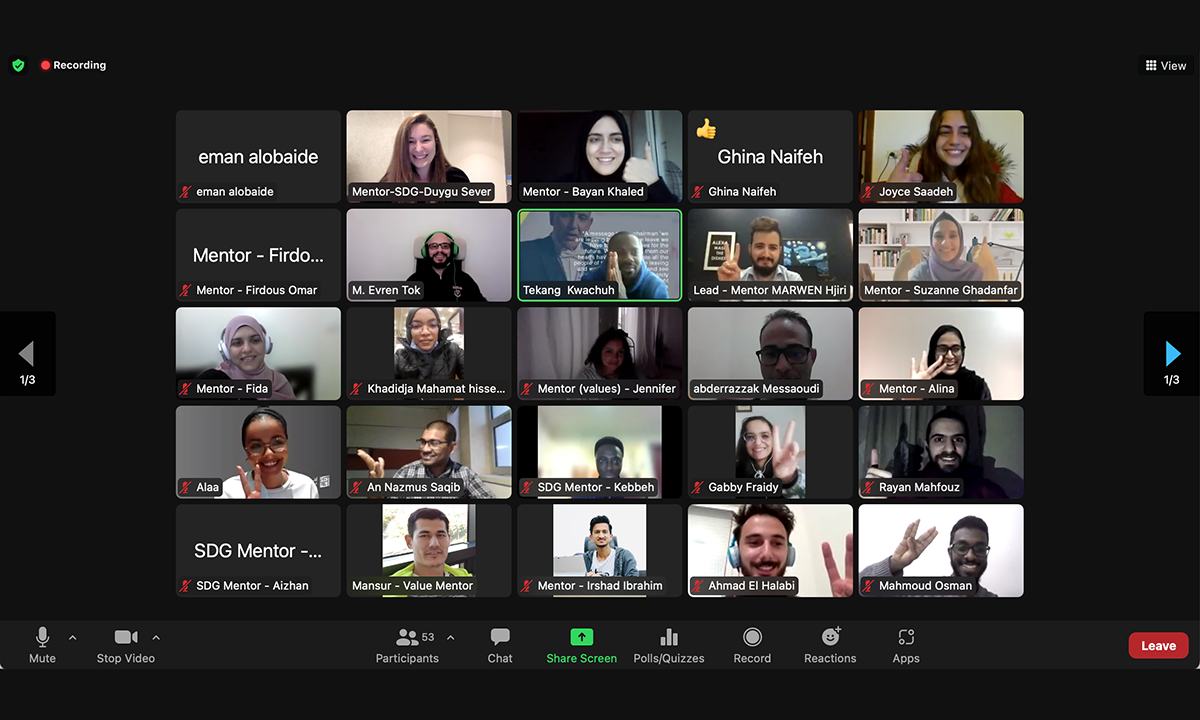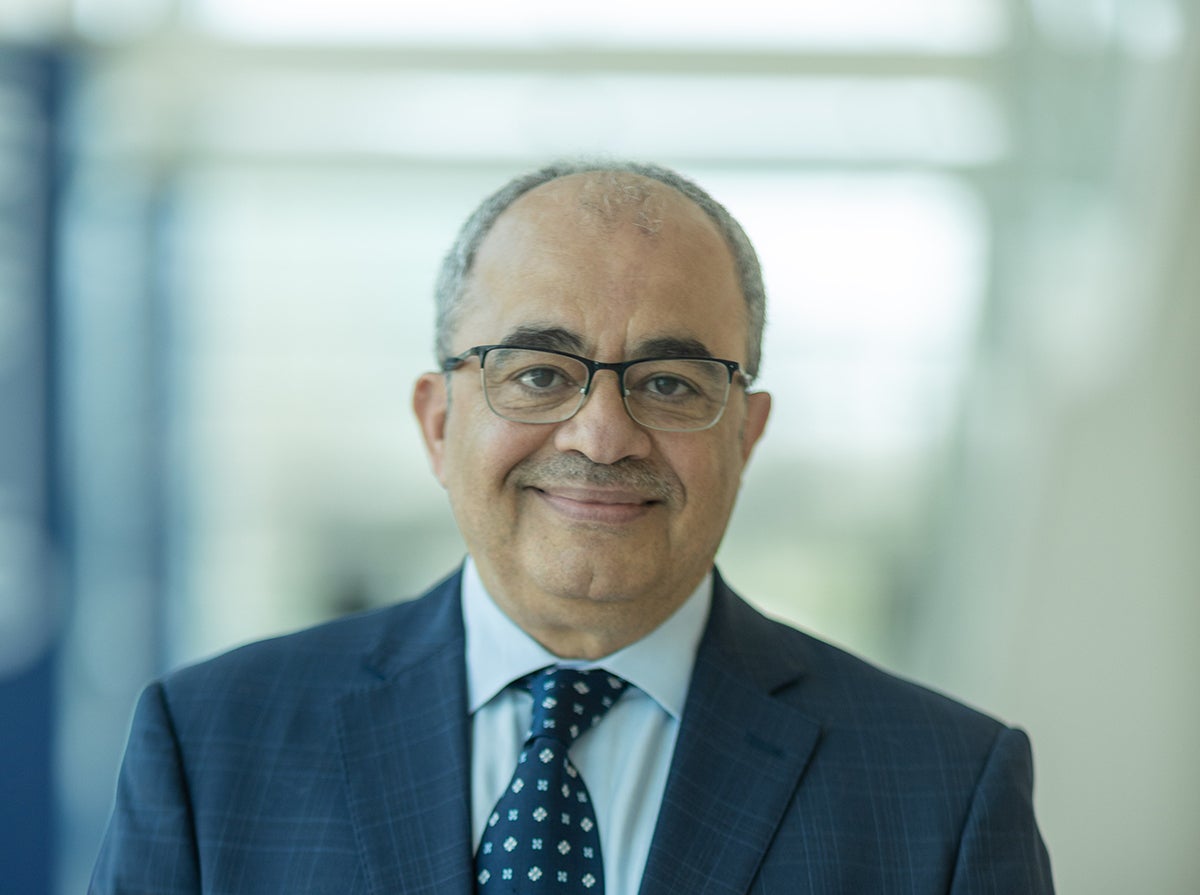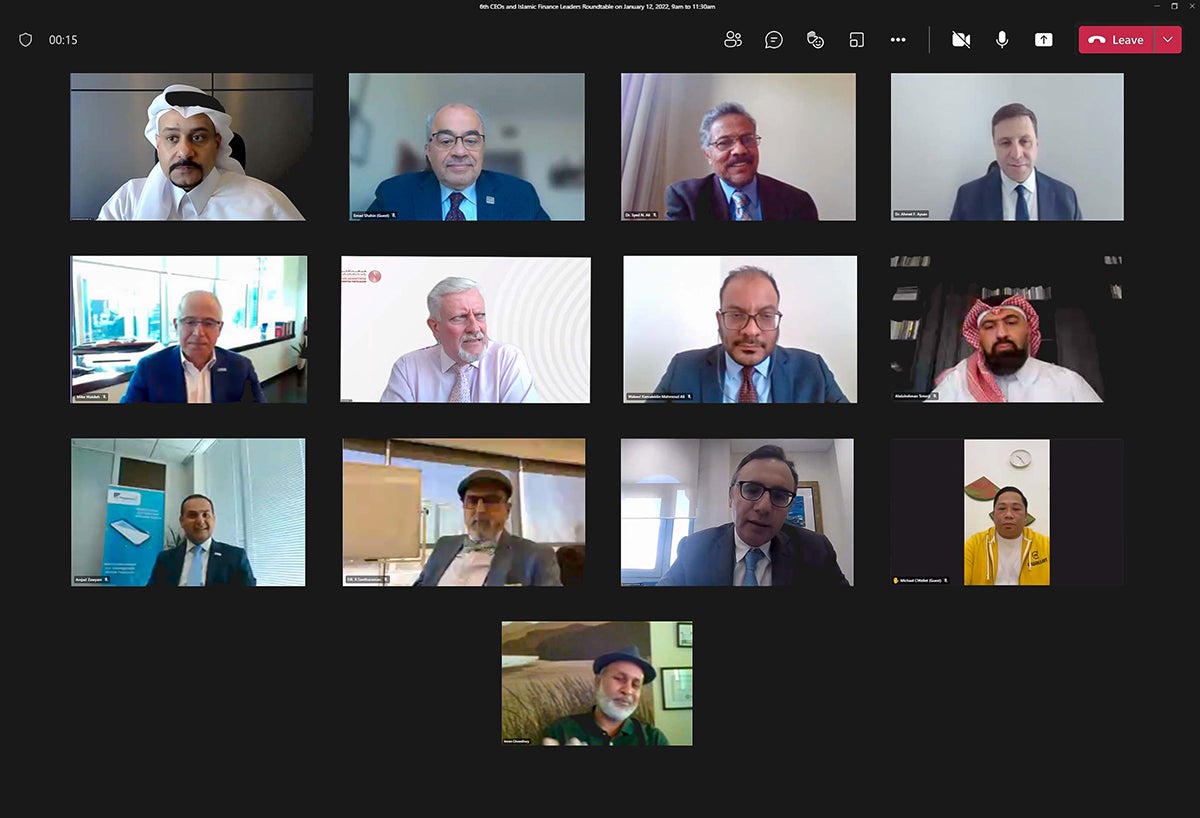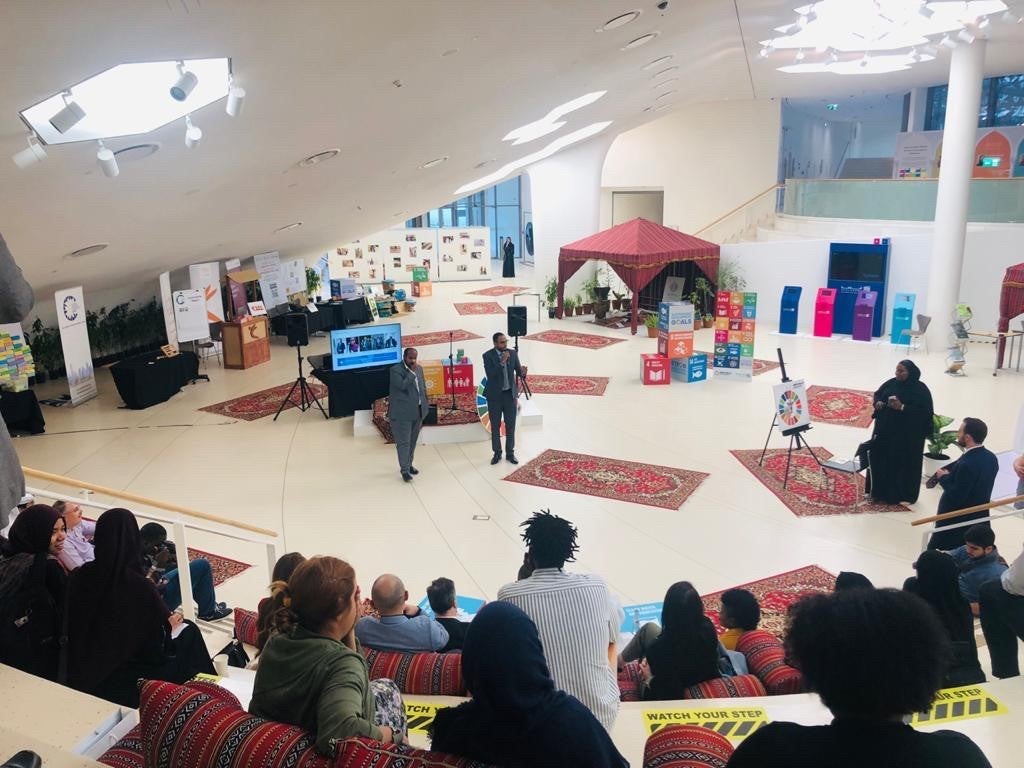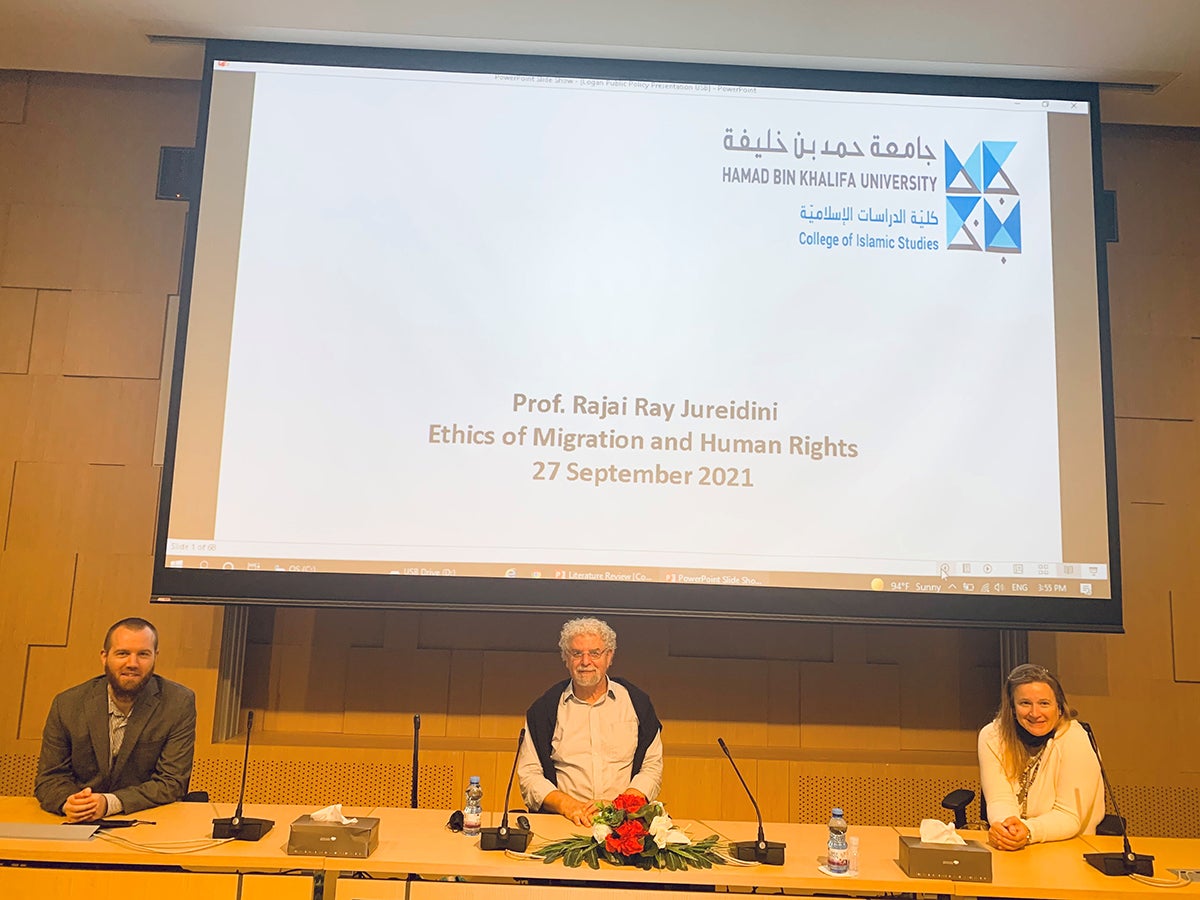
Hamad Bin Khalifa University’s DPCH Initiative Gathers Global Youth to Pledge on Designing a Post-COVID Humanity
DPCH initiative aims to design a fairer, more inclusive, and sustainable post-COVID humanity
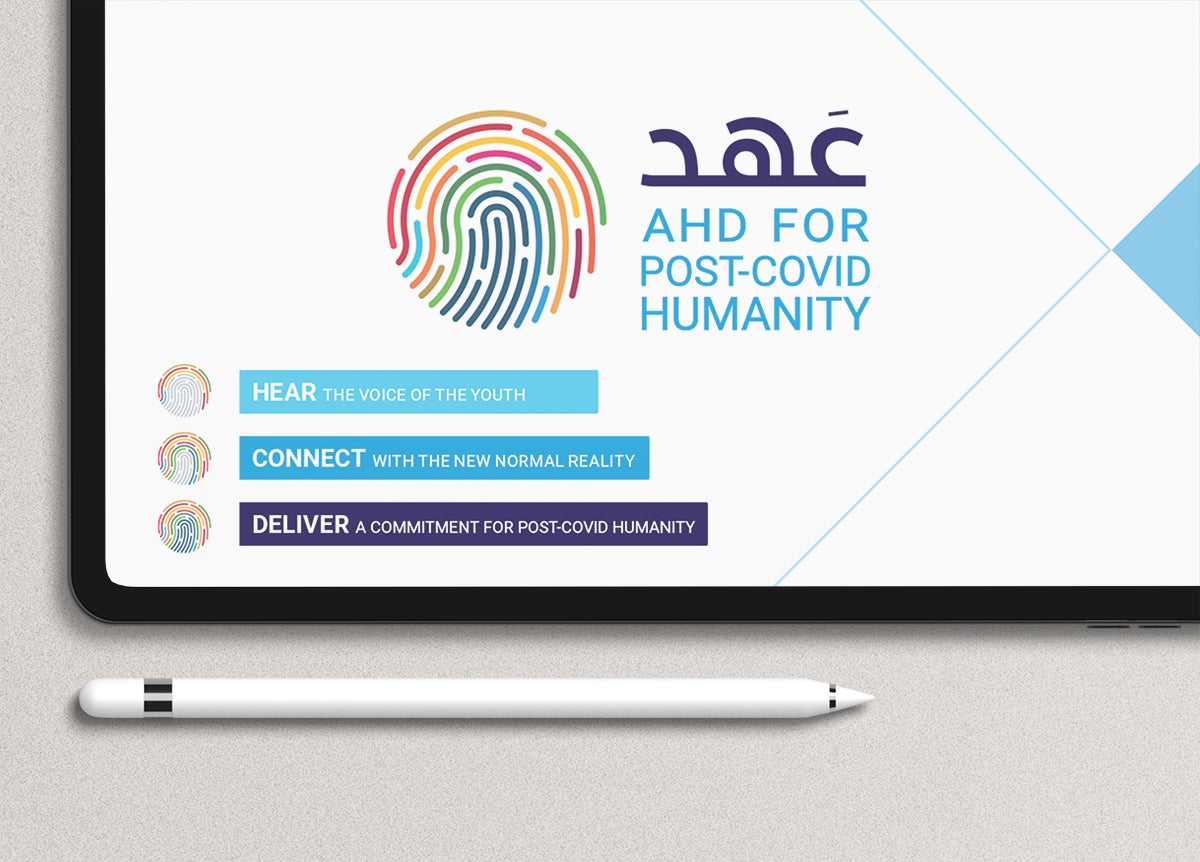
Design Post-COVID Humanity (DPCH), a Hamad Bin Khalifa University (HBKU) initiative in collaboration with strategic partners, recently held a two-day global youth social event “Ahd (Pledge) for Post-COVID Humanity”. In partnership with SOGLAB Design Studio and Maker Majlis, a platform under HBKU’s College of Islamic Studies (CIS), the virtual event brought together academics, youth leaders, innovators, and entrepreneurs to work with youth and harness their ability to reimagine a post-COVID humanity from a Global Sustainable Development Goals (SDG) perspective.
The dynamic program focused on ‘hearing the voice of the youth’ and ‘connecting with the new normal’ to give visibility to young people’s expectations for the post-COVID humanity and, using a human-centered design approach, turn those into an actionable, measurable, and localized Ahd (or pledge) linked to the SDGs. With the support of facilitators, the students who took part in the Ahd event will go on to prepare the first version of the pledge: “Hear, Connect and Deliver”.
The students are participants in the DPCH program launched by CIS in November 2020, a seven-month educational journey that stresses the three virtues of taaruf, taawun, and tarahum (acquaintance, co-operation, and mercifulness) to empower youth to design a post-COVID humanity.
Dr. Mohamed Evren Tok, Assistant Dean for Innovation and Community Engagement, and Associate Professor of Islam and Global Affairs at CIS, explained: “Ahd has given youth the space to think creatively and innovatively about changing our societies for the better. The event has focused on hearing youth’s expectations and finding ways to connect Sustainable Development Goals with human values to begin to deliver our commitment as global youth. Collectively, participants will have the support to develop the pledge and start designing that humanity based on the virtues that we commonly understand as universal conditions for the advancement of humankind.
“The Ahd process will involve creative tools for students to design action-oriented pledges to be implemented after the Ahd. The Ahd Youth Committee for 2021-22 will be composed of Eman Alobeid, Ihssane Benalluch, Dana Al Anzy and Khadeja Albuhaliqa. Every three months for a year, students all around the world will report their progress to the committee with respect to their pledges per each SDG. Pledges will be measurable, multi-partnered, actionable initiatives and at the same time, it aims to align with the 2030 Agenda for Sustainable Development, with the cooperation of global and local humanitarian organizations.”
The two-day Ahd social event also featured keynote speeches by respected academics Dr. Nader Hashemi, Associate Professor; Director, Center for Middle East Studies, University of Denver, Dr. Jeremy Koons, associate professor, Georgetown University, Qatar, and Dr. Josef Meri, a historian in interfaith relations in the Middle East at CIS, break-out group sessions, a Digital World Café, short talks by inspiring young innovators, entrepreneurs and youth leaders, and live performances by Drum Circle Sudan and the Muslim Choral Ensemble.
For further information on Design Post-COVID Humanity: Taaruf, Taawun, Tarahum (DPCH-3T), please visit https://www.hbku.edu.qa/en/cis/dpch-3t
For more information on the work of the College of Islamic Studies, please visit cis.hbku.edu.qa
Related News
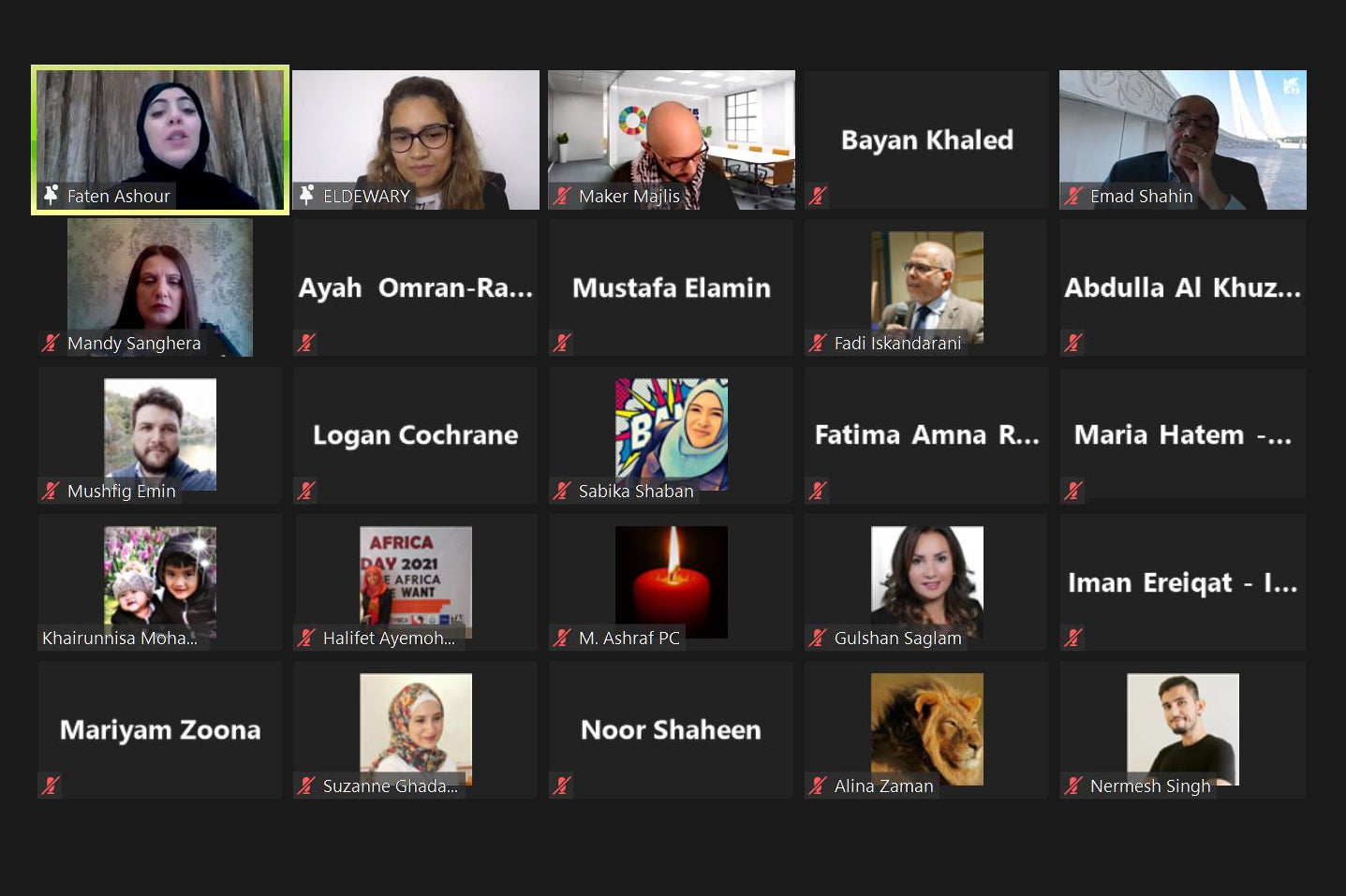
CIS Holds Maker Majlis World Refugee Day Event to Examine Lived Experiences and Advocate for Global Solutions
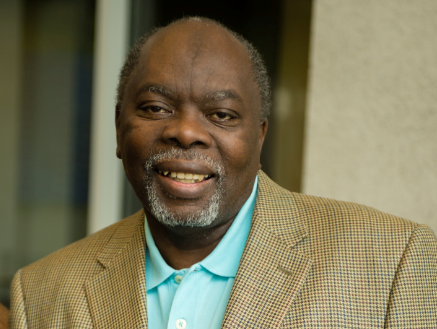
CIS Launches Project to Develop Uniquely Comprehensive Source on Islamic Reform
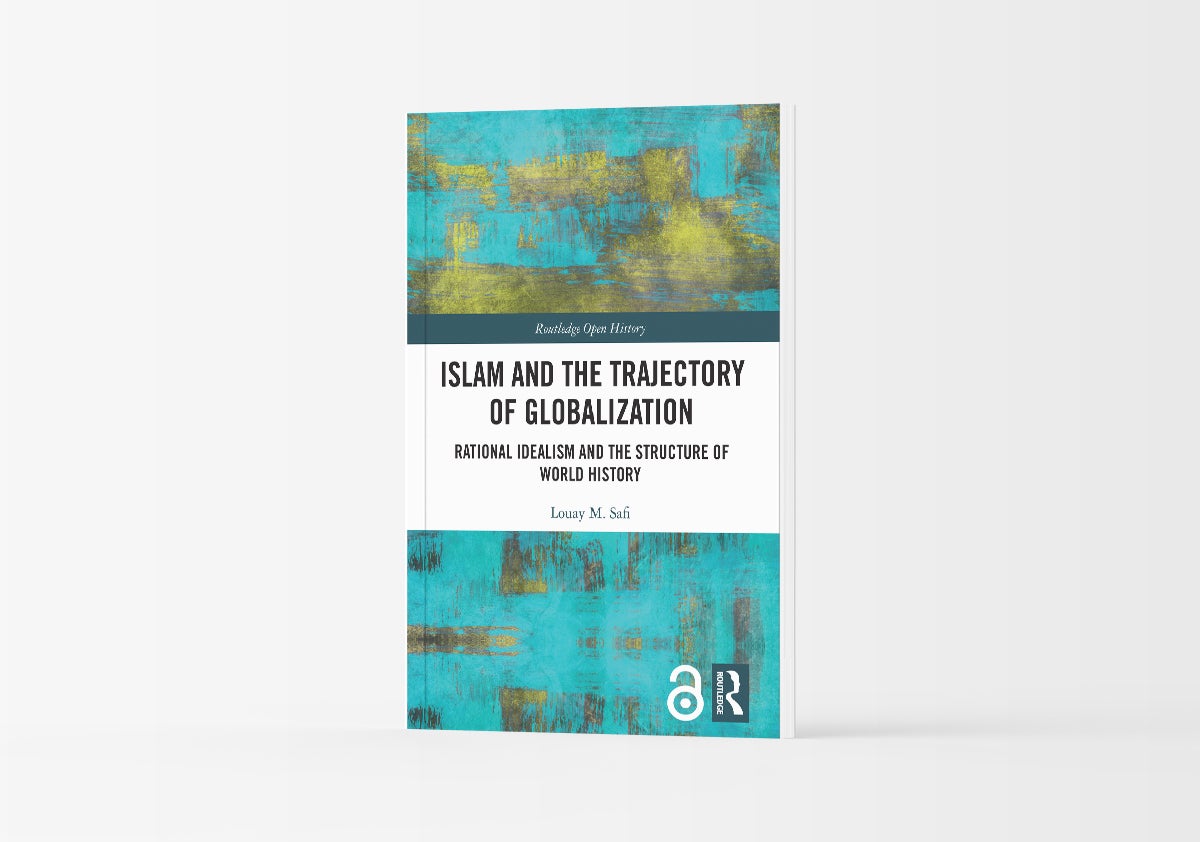
Professor at HBKU’s College of Islamic Studies Publishes New Open Access Book on Islam, Globalization, and World History
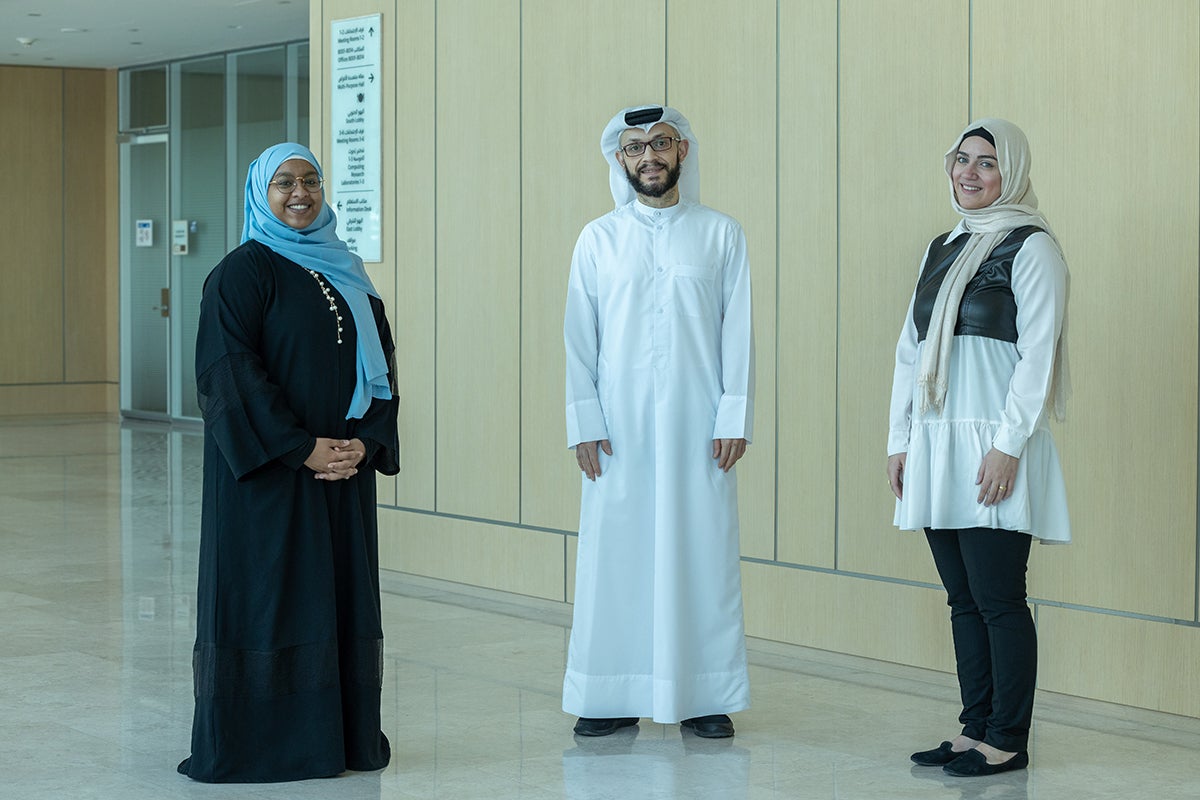
Reframing Youth Engagement and the Science-Faith-Innovation Nexus: The Case of Schifa

CIS Holds Maker Majlis World Refugee Day Event to Examine Lived Experiences and Advocate for Global Solutions

CIS Launches Project to Develop Uniquely Comprehensive Source on Islamic Reform

Professor at HBKU’s College of Islamic Studies Publishes New Open Access Book on Islam, Globalization, and World History

Reframing Youth Engagement and the Science-Faith-Innovation Nexus: The Case of Schifa

CIS Holds Maker Majlis World Refugee Day Event to Examine Lived Experiences and Advocate for Global Solutions

CIS Launches Project to Develop Uniquely Comprehensive Source on Islamic Reform

Professor at HBKU’s College of Islamic Studies Publishes New Open Access Book on Islam, Globalization, and World History

Reframing Youth Engagement and the Science-Faith-Innovation Nexus: The Case of Schifa

CIS Holds Maker Majlis World Refugee Day Event to Examine Lived Experiences and Advocate for Global Solutions

CIS Launches Project to Develop Uniquely Comprehensive Source on Islamic Reform

Professor at HBKU’s College of Islamic Studies Publishes New Open Access Book on Islam, Globalization, and World History

Reframing Youth Engagement and the Science-Faith-Innovation Nexus: The Case of Schifa

CIS Holds Maker Majlis World Refugee Day Event to Examine Lived Experiences and Advocate for Global Solutions

CIS Launches Project to Develop Uniquely Comprehensive Source on Islamic Reform

Professor at HBKU’s College of Islamic Studies Publishes New Open Access Book on Islam, Globalization, and World History

Reframing Youth Engagement and the Science-Faith-Innovation Nexus: The Case of Schifa

CIS Holds Maker Majlis World Refugee Day Event to Examine Lived Experiences and Advocate for Global Solutions

CIS Launches Project to Develop Uniquely Comprehensive Source on Islamic Reform

Professor at HBKU’s College of Islamic Studies Publishes New Open Access Book on Islam, Globalization, and World History

Reframing Youth Engagement and the Science-Faith-Innovation Nexus: The Case of Schifa

CIS Holds Maker Majlis World Refugee Day Event to Examine Lived Experiences and Advocate for Global Solutions

CIS Launches Project to Develop Uniquely Comprehensive Source on Islamic Reform

Professor at HBKU’s College of Islamic Studies Publishes New Open Access Book on Islam, Globalization, and World History

Reframing Youth Engagement and the Science-Faith-Innovation Nexus: The Case of Schifa

CIS Holds Maker Majlis World Refugee Day Event to Examine Lived Experiences and Advocate for Global Solutions

CIS Launches Project to Develop Uniquely Comprehensive Source on Islamic Reform

Professor at HBKU’s College of Islamic Studies Publishes New Open Access Book on Islam, Globalization, and World History

Reframing Youth Engagement and the Science-Faith-Innovation Nexus: The Case of Schifa

CIS Holds Maker Majlis World Refugee Day Event to Examine Lived Experiences and Advocate for Global Solutions

CIS Launches Project to Develop Uniquely Comprehensive Source on Islamic Reform

Professor at HBKU’s College of Islamic Studies Publishes New Open Access Book on Islam, Globalization, and World History

Reframing Youth Engagement and the Science-Faith-Innovation Nexus: The Case of Schifa

CIS Holds Maker Majlis World Refugee Day Event to Examine Lived Experiences and Advocate for Global Solutions

CIS Launches Project to Develop Uniquely Comprehensive Source on Islamic Reform

Professor at HBKU’s College of Islamic Studies Publishes New Open Access Book on Islam, Globalization, and World History

Reframing Youth Engagement and the Science-Faith-Innovation Nexus: The Case of Schifa

CIS Holds Maker Majlis World Refugee Day Event to Examine Lived Experiences and Advocate for Global Solutions

CIS Launches Project to Develop Uniquely Comprehensive Source on Islamic Reform

Professor at HBKU’s College of Islamic Studies Publishes New Open Access Book on Islam, Globalization, and World History

Reframing Youth Engagement and the Science-Faith-Innovation Nexus: The Case of Schifa

CIS Holds Maker Majlis World Refugee Day Event to Examine Lived Experiences and Advocate for Global Solutions

CIS Launches Project to Develop Uniquely Comprehensive Source on Islamic Reform

Professor at HBKU’s College of Islamic Studies Publishes New Open Access Book on Islam, Globalization, and World History

Reframing Youth Engagement and the Science-Faith-Innovation Nexus: The Case of Schifa

CIS Holds Maker Majlis World Refugee Day Event to Examine Lived Experiences and Advocate for Global Solutions

CIS Launches Project to Develop Uniquely Comprehensive Source on Islamic Reform

Professor at HBKU’s College of Islamic Studies Publishes New Open Access Book on Islam, Globalization, and World History

Reframing Youth Engagement and the Science-Faith-Innovation Nexus: The Case of Schifa

CIS Holds Maker Majlis World Refugee Day Event to Examine Lived Experiences and Advocate for Global Solutions

CIS Launches Project to Develop Uniquely Comprehensive Source on Islamic Reform

Professor at HBKU’s College of Islamic Studies Publishes New Open Access Book on Islam, Globalization, and World History

Reframing Youth Engagement and the Science-Faith-Innovation Nexus: The Case of Schifa

CIS Holds Maker Majlis World Refugee Day Event to Examine Lived Experiences and Advocate for Global Solutions

CIS Launches Project to Develop Uniquely Comprehensive Source on Islamic Reform

Professor at HBKU’s College of Islamic Studies Publishes New Open Access Book on Islam, Globalization, and World History

Reframing Youth Engagement and the Science-Faith-Innovation Nexus: The Case of Schifa

CIS Holds Maker Majlis World Refugee Day Event to Examine Lived Experiences and Advocate for Global Solutions

CIS Launches Project to Develop Uniquely Comprehensive Source on Islamic Reform

Professor at HBKU’s College of Islamic Studies Publishes New Open Access Book on Islam, Globalization, and World History

Reframing Youth Engagement and the Science-Faith-Innovation Nexus: The Case of Schifa

CIS Holds Maker Majlis World Refugee Day Event to Examine Lived Experiences and Advocate for Global Solutions

CIS Launches Project to Develop Uniquely Comprehensive Source on Islamic Reform

Professor at HBKU’s College of Islamic Studies Publishes New Open Access Book on Islam, Globalization, and World History

Reframing Youth Engagement and the Science-Faith-Innovation Nexus: The Case of Schifa

CIS Holds Maker Majlis World Refugee Day Event to Examine Lived Experiences and Advocate for Global Solutions

CIS Launches Project to Develop Uniquely Comprehensive Source on Islamic Reform

Professor at HBKU’s College of Islamic Studies Publishes New Open Access Book on Islam, Globalization, and World History

Reframing Youth Engagement and the Science-Faith-Innovation Nexus: The Case of Schifa

CIS Holds Maker Majlis World Refugee Day Event to Examine Lived Experiences and Advocate for Global Solutions

CIS Launches Project to Develop Uniquely Comprehensive Source on Islamic Reform

Professor at HBKU’s College of Islamic Studies Publishes New Open Access Book on Islam, Globalization, and World History

Reframing Youth Engagement and the Science-Faith-Innovation Nexus: The Case of Schifa

CIS Holds Maker Majlis World Refugee Day Event to Examine Lived Experiences and Advocate for Global Solutions

CIS Launches Project to Develop Uniquely Comprehensive Source on Islamic Reform

Professor at HBKU’s College of Islamic Studies Publishes New Open Access Book on Islam, Globalization, and World History

Reframing Youth Engagement and the Science-Faith-Innovation Nexus: The Case of Schifa

CIS Holds Maker Majlis World Refugee Day Event to Examine Lived Experiences and Advocate for Global Solutions

CIS Launches Project to Develop Uniquely Comprehensive Source on Islamic Reform

Professor at HBKU’s College of Islamic Studies Publishes New Open Access Book on Islam, Globalization, and World History

Reframing Youth Engagement and the Science-Faith-Innovation Nexus: The Case of Schifa

CIS Holds Maker Majlis World Refugee Day Event to Examine Lived Experiences and Advocate for Global Solutions

CIS Launches Project to Develop Uniquely Comprehensive Source on Islamic Reform

Professor at HBKU’s College of Islamic Studies Publishes New Open Access Book on Islam, Globalization, and World History

Reframing Youth Engagement and the Science-Faith-Innovation Nexus: The Case of Schifa

CIS Holds Maker Majlis World Refugee Day Event to Examine Lived Experiences and Advocate for Global Solutions

CIS Launches Project to Develop Uniquely Comprehensive Source on Islamic Reform

Professor at HBKU’s College of Islamic Studies Publishes New Open Access Book on Islam, Globalization, and World History

Reframing Youth Engagement and the Science-Faith-Innovation Nexus: The Case of Schifa

CIS Holds Maker Majlis World Refugee Day Event to Examine Lived Experiences and Advocate for Global Solutions

CIS Launches Project to Develop Uniquely Comprehensive Source on Islamic Reform

Professor at HBKU’s College of Islamic Studies Publishes New Open Access Book on Islam, Globalization, and World History

Reframing Youth Engagement and the Science-Faith-Innovation Nexus: The Case of Schifa

CIS Holds Maker Majlis World Refugee Day Event to Examine Lived Experiences and Advocate for Global Solutions

CIS Launches Project to Develop Uniquely Comprehensive Source on Islamic Reform

Professor at HBKU’s College of Islamic Studies Publishes New Open Access Book on Islam, Globalization, and World History

Reframing Youth Engagement and the Science-Faith-Innovation Nexus: The Case of Schifa

CIS Holds Maker Majlis World Refugee Day Event to Examine Lived Experiences and Advocate for Global Solutions

CIS Launches Project to Develop Uniquely Comprehensive Source on Islamic Reform

Professor at HBKU’s College of Islamic Studies Publishes New Open Access Book on Islam, Globalization, and World History

Reframing Youth Engagement and the Science-Faith-Innovation Nexus: The Case of Schifa

CIS Holds Maker Majlis World Refugee Day Event to Examine Lived Experiences and Advocate for Global Solutions

CIS Launches Project to Develop Uniquely Comprehensive Source on Islamic Reform

Professor at HBKU’s College of Islamic Studies Publishes New Open Access Book on Islam, Globalization, and World History

Reframing Youth Engagement and the Science-Faith-Innovation Nexus: The Case of Schifa

CIS Holds Maker Majlis World Refugee Day Event to Examine Lived Experiences and Advocate for Global Solutions

CIS Launches Project to Develop Uniquely Comprehensive Source on Islamic Reform

Professor at HBKU’s College of Islamic Studies Publishes New Open Access Book on Islam, Globalization, and World History

Reframing Youth Engagement and the Science-Faith-Innovation Nexus: The Case of Schifa

CIS Holds Maker Majlis World Refugee Day Event to Examine Lived Experiences and Advocate for Global Solutions

CIS Launches Project to Develop Uniquely Comprehensive Source on Islamic Reform

Professor at HBKU’s College of Islamic Studies Publishes New Open Access Book on Islam, Globalization, and World History

Reframing Youth Engagement and the Science-Faith-Innovation Nexus: The Case of Schifa

CIS Holds Maker Majlis World Refugee Day Event to Examine Lived Experiences and Advocate for Global Solutions

CIS Launches Project to Develop Uniquely Comprehensive Source on Islamic Reform

Professor at HBKU’s College of Islamic Studies Publishes New Open Access Book on Islam, Globalization, and World History

Reframing Youth Engagement and the Science-Faith-Innovation Nexus: The Case of Schifa

CIS Holds Maker Majlis World Refugee Day Event to Examine Lived Experiences and Advocate for Global Solutions

CIS Launches Project to Develop Uniquely Comprehensive Source on Islamic Reform

Professor at HBKU’s College of Islamic Studies Publishes New Open Access Book on Islam, Globalization, and World History

Reframing Youth Engagement and the Science-Faith-Innovation Nexus: The Case of Schifa

CIS Holds Maker Majlis World Refugee Day Event to Examine Lived Experiences and Advocate for Global Solutions

CIS Launches Project to Develop Uniquely Comprehensive Source on Islamic Reform

Professor at HBKU’s College of Islamic Studies Publishes New Open Access Book on Islam, Globalization, and World History

Reframing Youth Engagement and the Science-Faith-Innovation Nexus: The Case of Schifa

CIS Holds Maker Majlis World Refugee Day Event to Examine Lived Experiences and Advocate for Global Solutions

CIS Launches Project to Develop Uniquely Comprehensive Source on Islamic Reform

Professor at HBKU’s College of Islamic Studies Publishes New Open Access Book on Islam, Globalization, and World History

Reframing Youth Engagement and the Science-Faith-Innovation Nexus: The Case of Schifa

CIS Holds Maker Majlis World Refugee Day Event to Examine Lived Experiences and Advocate for Global Solutions

CIS Launches Project to Develop Uniquely Comprehensive Source on Islamic Reform

Professor at HBKU’s College of Islamic Studies Publishes New Open Access Book on Islam, Globalization, and World History

Reframing Youth Engagement and the Science-Faith-Innovation Nexus: The Case of Schifa

CIS Holds Maker Majlis World Refugee Day Event to Examine Lived Experiences and Advocate for Global Solutions

CIS Launches Project to Develop Uniquely Comprehensive Source on Islamic Reform

Professor at HBKU’s College of Islamic Studies Publishes New Open Access Book on Islam, Globalization, and World History

Reframing Youth Engagement and the Science-Faith-Innovation Nexus: The Case of Schifa

CIS Holds Maker Majlis World Refugee Day Event to Examine Lived Experiences and Advocate for Global Solutions

CIS Launches Project to Develop Uniquely Comprehensive Source on Islamic Reform

Professor at HBKU’s College of Islamic Studies Publishes New Open Access Book on Islam, Globalization, and World History

Reframing Youth Engagement and the Science-Faith-Innovation Nexus: The Case of Schifa

CIS Holds Maker Majlis World Refugee Day Event to Examine Lived Experiences and Advocate for Global Solutions

CIS Launches Project to Develop Uniquely Comprehensive Source on Islamic Reform

Professor at HBKU’s College of Islamic Studies Publishes New Open Access Book on Islam, Globalization, and World History

Reframing Youth Engagement and the Science-Faith-Innovation Nexus: The Case of Schifa

CIS Holds Maker Majlis World Refugee Day Event to Examine Lived Experiences and Advocate for Global Solutions

CIS Launches Project to Develop Uniquely Comprehensive Source on Islamic Reform

Professor at HBKU’s College of Islamic Studies Publishes New Open Access Book on Islam, Globalization, and World History

Reframing Youth Engagement and the Science-Faith-Innovation Nexus: The Case of Schifa

CIS Holds Maker Majlis World Refugee Day Event to Examine Lived Experiences and Advocate for Global Solutions

CIS Launches Project to Develop Uniquely Comprehensive Source on Islamic Reform

Professor at HBKU’s College of Islamic Studies Publishes New Open Access Book on Islam, Globalization, and World History

Reframing Youth Engagement and the Science-Faith-Innovation Nexus: The Case of Schifa

CIS Holds Maker Majlis World Refugee Day Event to Examine Lived Experiences and Advocate for Global Solutions

CIS Launches Project to Develop Uniquely Comprehensive Source on Islamic Reform

Professor at HBKU’s College of Islamic Studies Publishes New Open Access Book on Islam, Globalization, and World History

Reframing Youth Engagement and the Science-Faith-Innovation Nexus: The Case of Schifa

CIS Holds Maker Majlis World Refugee Day Event to Examine Lived Experiences and Advocate for Global Solutions






